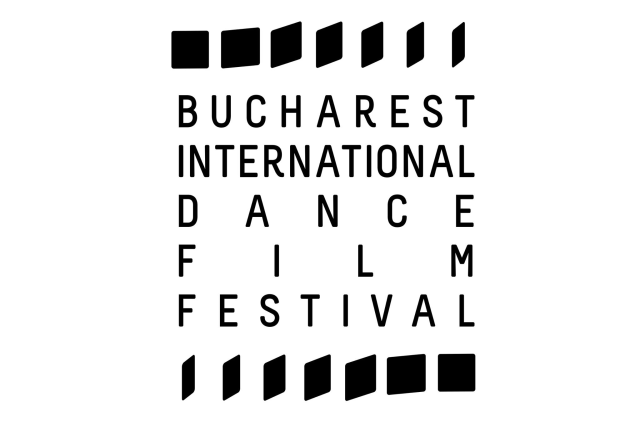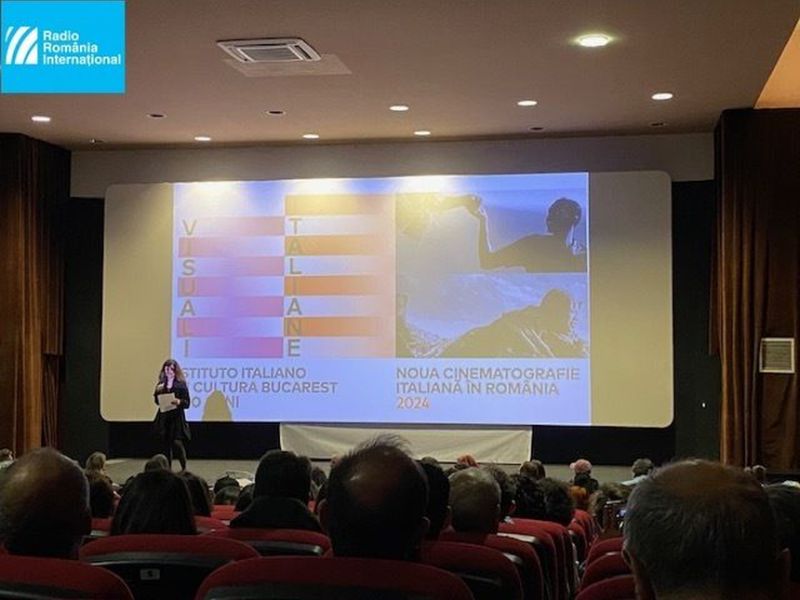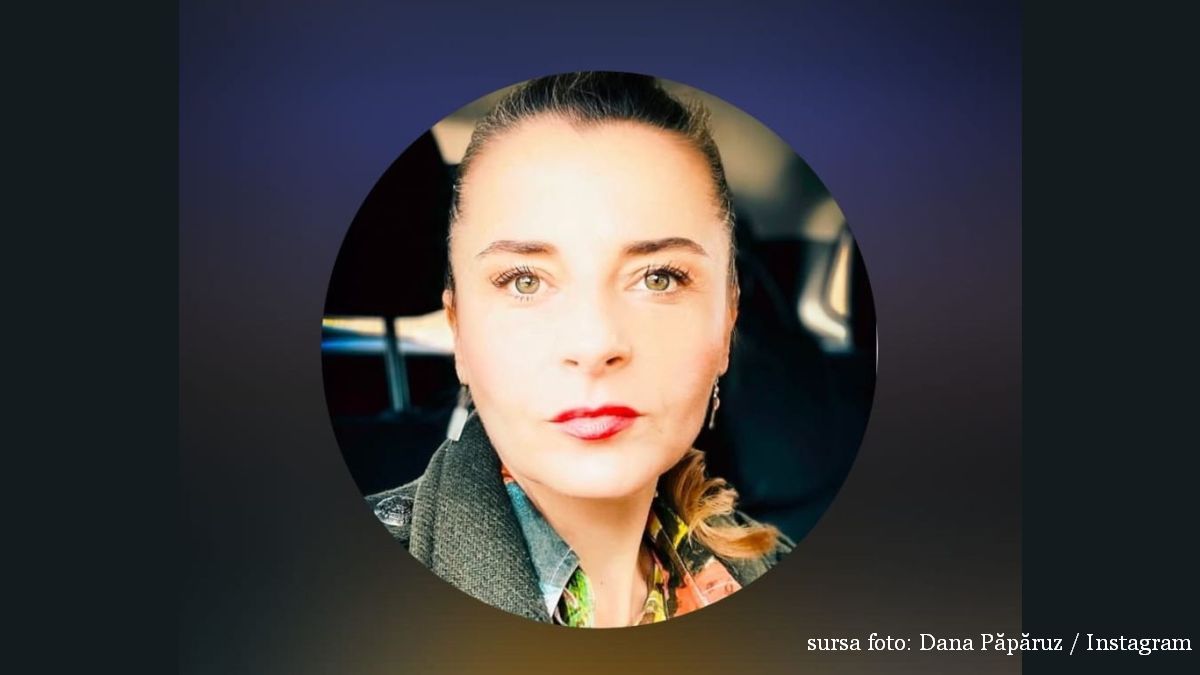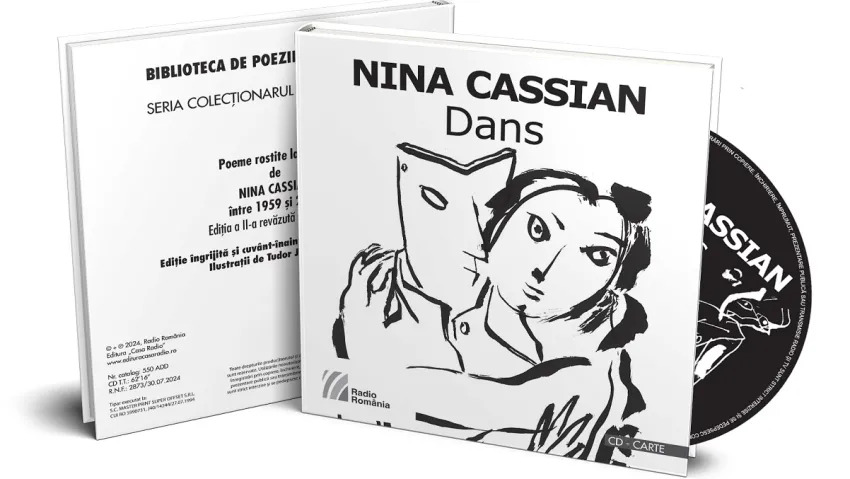The 4th Bucharest International Dance Film Festival
For the fourth consecutive year, Romania's capital city played host to the popular Bucharest International Dance Film Festival
Warning: Trying to access array offset on null in /home/web/rri.ro/public/wp-content/themes/rri/template-parts/content.php on line 53

Warning: Trying to access array offset on null in /home/web/rri.ro/public/wp-content/themes/rri/template-parts/content.php on line 98
Luana Pleşea,
21.09.2018, 19:43
For the fourth consecutive year, Romania’s capital city played host
to the popular Bucharest International Dance Film Festival. Unique in Romania,
the Festival is produced by the TangajDance Association and offers film
screens, performances, workshops and exhibitions.
Every year the festival revolves around a core theme. This year it
is called RETRACING. Choreographer Simona Deaconescu, the festival’s artistic
director, told us more:
2018 is the year of the
Great Union Centennial, and we’ve given this event due consideration. To me and
my team the last 100 years are very important. Hence we’ve tried to represent
it from the point of view of people who’ve experienced this period, whether
we’re talking about generations of people who lived in this period, the way
they endured and the perseverance with which they tried to live their lives and
fulfil their dreams… Even if the festival has this historic theme, it very
much refers to the way people conceive history, their personal interpretation
of it. It focuses on people’s perception of history through the lens of their
modern life, looking out to the future as well.
On the first day of the festival, organisers screened Midnight
Specials, A selection of Romanian archive films, a program curated in
cooperation with the Bucharest National Dance Centre, which hosted the
screening. Here is Corina Cimpoieru, a consultant with the Research Department
of the National Dance Centre with more details:
Dance film does not have an
official or unofficial history, in the sense of a systematic approach to dance
or setting up a film genre as such. It is rather a retrospective and
retroactive outlook on the history of Romanian dance, an effort that the
National Dance Centre started a few years back by means of a series of projects
in cooperation with the National Film Archive. As a result, we have identified
scattered dance sequences in difference film genres, from silent films to dance
reports, newsreels from the 50s, documentary art films produced by the
Alexandru Sahia Film Studios and so on…
The Festival’s agenda also included film screenings outside the
official competition. One such film is the Romanian 3D feature My life
rehearsed in one leg, directed by Bogdan Mustata, with choreography by Iulia
Weiss. It is an experimental 3D film, says film director and script writer
Bogdan Mustata, the recipient of the Golden Bear Award for best short film at
the 2008 International Berlin Film Festival for A Good Day for a Swim.
I started out from a series
of technicalities that have to do with film directing… I wanted to work without
a narrative and have characters stripped of psychological and social substance
and just use the tools at my disposal, engage in a simple dialogue with them,
without touching on human psychology and knowledge of life… Then I started to
build on that, discussing what we can do with our bodies, and how we can use it.
Bogdan Mustata also wrote the script, which is an analysis of the
relation between memory and personal identity. Bogdan Mustata:
There were two relations.
One was based on quotes from the films, the other on quotes from theatre plays,
and I selected the films and the plays from memory. I was interested to see how
these memories, many of them false and fabricated, help define a person’s
identity… The films do not all belong to the same genre and are easy to recognize:
Hiroshima, Last Year at Marienbad, but also Armageddon or Before
Sunrise. In the case of Before Sunrise, I for one was interested in the kind
of feeling you get when you meet a stranger and you can redefine yourself,
telling him everything about yourself. This is what makes meeting new people
special. Anything you hate about yourself can change, because you are telling
the story and only you can chose what you say to him. You start making new
memories. And these feelings and memories create a new identity for us.
Since 2016, the Bucharest International Dance
Film Festival has channeled a substantial part of its resources into creating a
market for the film dance in Romania, by encouraging artists in putting
together such productions. This is how the National Competition section of the
Festival was created. Two years later, the number of applications for this
section has tripled. States Uprooted, the stage direction and choreography of
which belong to Ioana Turcan, was chosen the best Romanian short film, out of
the 10 productions shortlisted this year. The film tackles different identities
and perceptions, different transition rituals, and uprooting in Romania and the
US. Ioana Turcan says the scenes were shot during her travels in 2012-2017, but
not especially for this short film:
This
is how I work. I have created a personal audiovisual archive, which I keep
updating every time I travel. I started doing that when I left for the US, in
2012. I was on a ‘Work and Travel’ programme. I would spend 3 months in the US
and the rest of the year in Romania. And I noticed social differences, as well
as differences in terms of outlook, approaches, identity and perceptions. Since
I was spending a lot of time there, this issue affected me. I no longer knew
how to look at myself. So the idea was to make a film suitable for screening
not only in cinema halls, but one that expresses my desire to experiment with
the environment. Because it has dance scenes, fight scenes, various types of
video performances, so it is pretty experimental, interdisciplinary I’d say.
The winner of the International Competition,
out of the 20 entries, was Night Dancing, a Romanian-British co-production
directed by Barney Cokeliss, with choreography by Louise Tanoto, Jacob Ingram-Dodd
and Jason Thorpe.






























